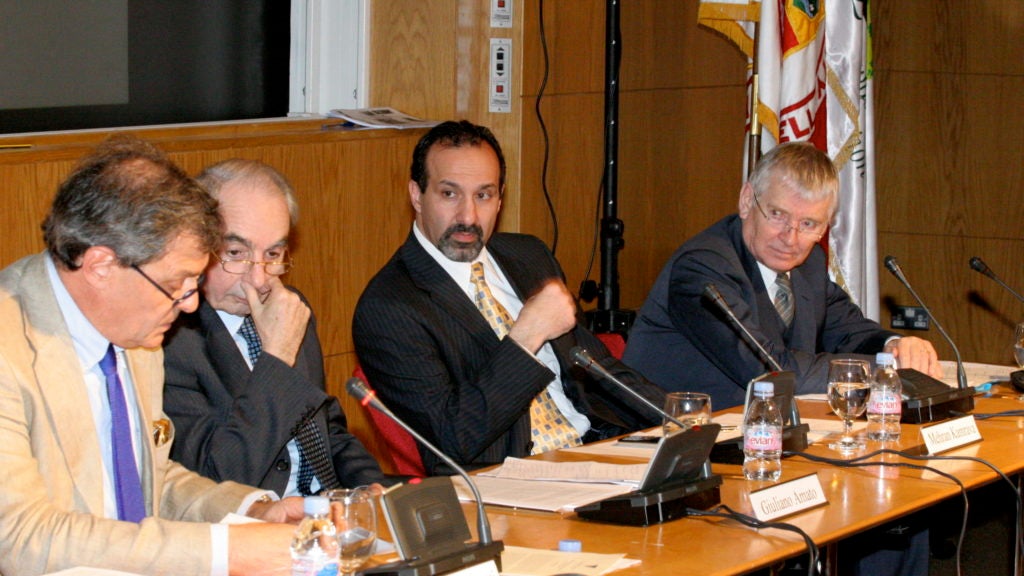CIRS Hosts a Symposium on Media between Dialogue and War

On February 26, 2008, the Center for International and Regional Studies collaborated with the Italian organization Reset: Dialogues on Civilizations to host a joint one-day symposium entitled “Global Media between Dialogue and War: When Enemies Boost the Ratings.”
The symposium featured an intensive set of discussions in which experts from the fields of media, journalism, international relations and film studies came together to discuss the consequences of using the international media as a weapon of war. The discussions covered several important issues pertaining to the relationship between media and war, as well as the state of the interaction between Arab and Western media.
Experts and policymakers raised their concerns over the post-9/11 global media environment and how fair and accurate reporting is being undermined by practices and other tactics used to please local viewership and compete with international media outlets. They warned against the media’s propagation of stereotypes and developing political bias. “Politics should never be allowed to interfere with the media,” said Giuliano Amato, the Italian Minister of the Interior.
In his turn, Otto Schily, a member of the German parliament, added, “If politics and media get together, there is always the possibility of a greater harm.”
Although the Arabic broadcast world witnessed significant developments in the rise of independent satellite news channels, the Arabic media faces the same challenge of political interference. The conference speakers expressed that the Arabic media needs to undergo reforms to break away from tight governmental controls. Broadcasts in Arabic have assumed particular significance as more media outlets are eager for a wider audience share in the Arab world. To that end, Ibrahim Helal, Deputy Manager of Al Jazeera English, said that journalists often produce news in which they reflect their biases and propagate stereotypes.
The audience also screened two documentary films and asked questions of the directors. The first film was entitled “Who to Believe?” and was shown by the Iranian filmmaker Hossein Dehbashi and his assistant Mateo Farzaneh. This was an edited version of a longer, seven-hour documentary discussing how the war in Iraq has become a subject of polarization in Western and Arab media. The second documentary was a proposal introduced by Carlo Sartori, the CEO of NewCo Rai International, the Italian media organization, to launch an Arabic language channel from an Italian perspective. The hope is to ease some of the strained relations between the Arab world and the West by emphasizing cross-cultural communication.
The symposium was attended by students, journalists, scholars, Doha-based ambassadors and other members of the public. It concluded on the note that listening is as much a solution to war as speaking is, and that two-way communication is the simplest yet hardest-to-achieve model of communication.